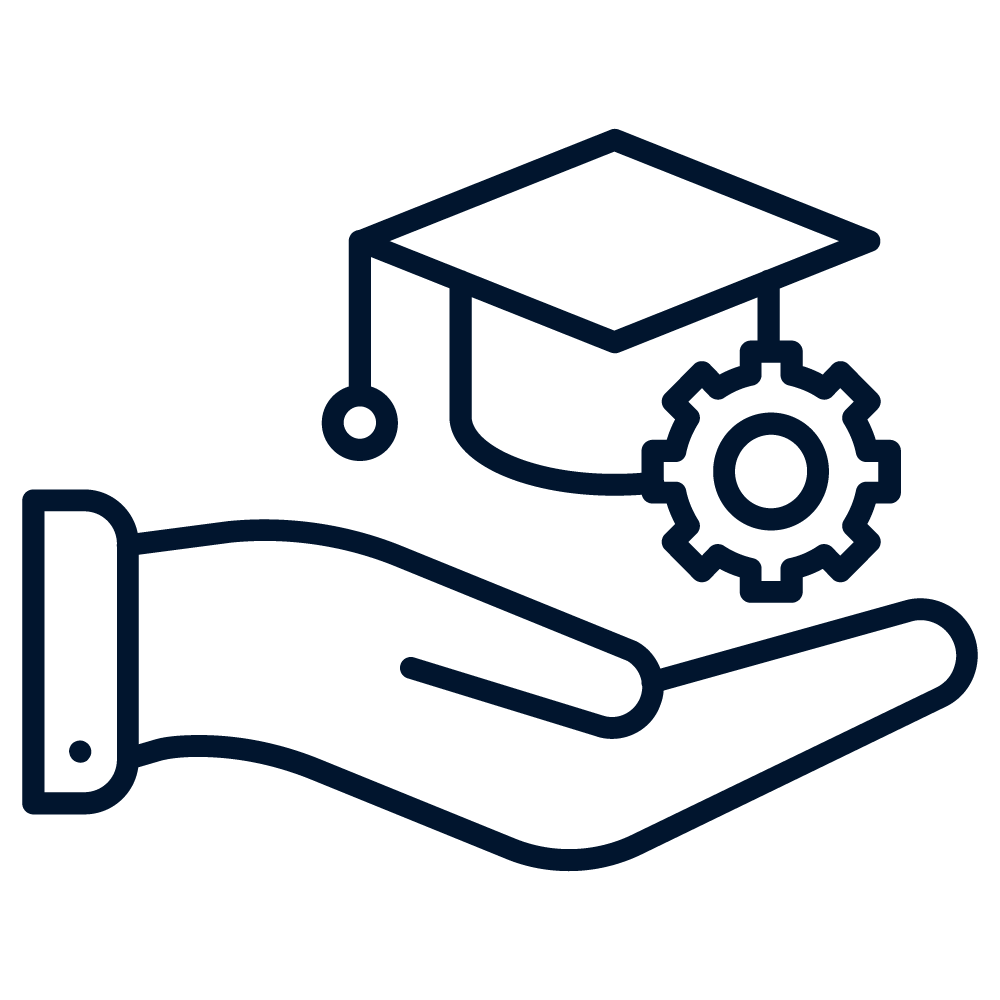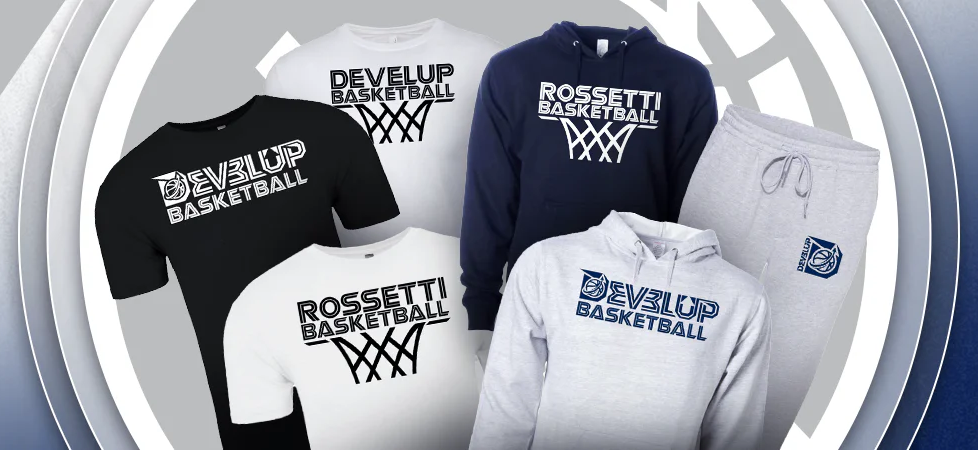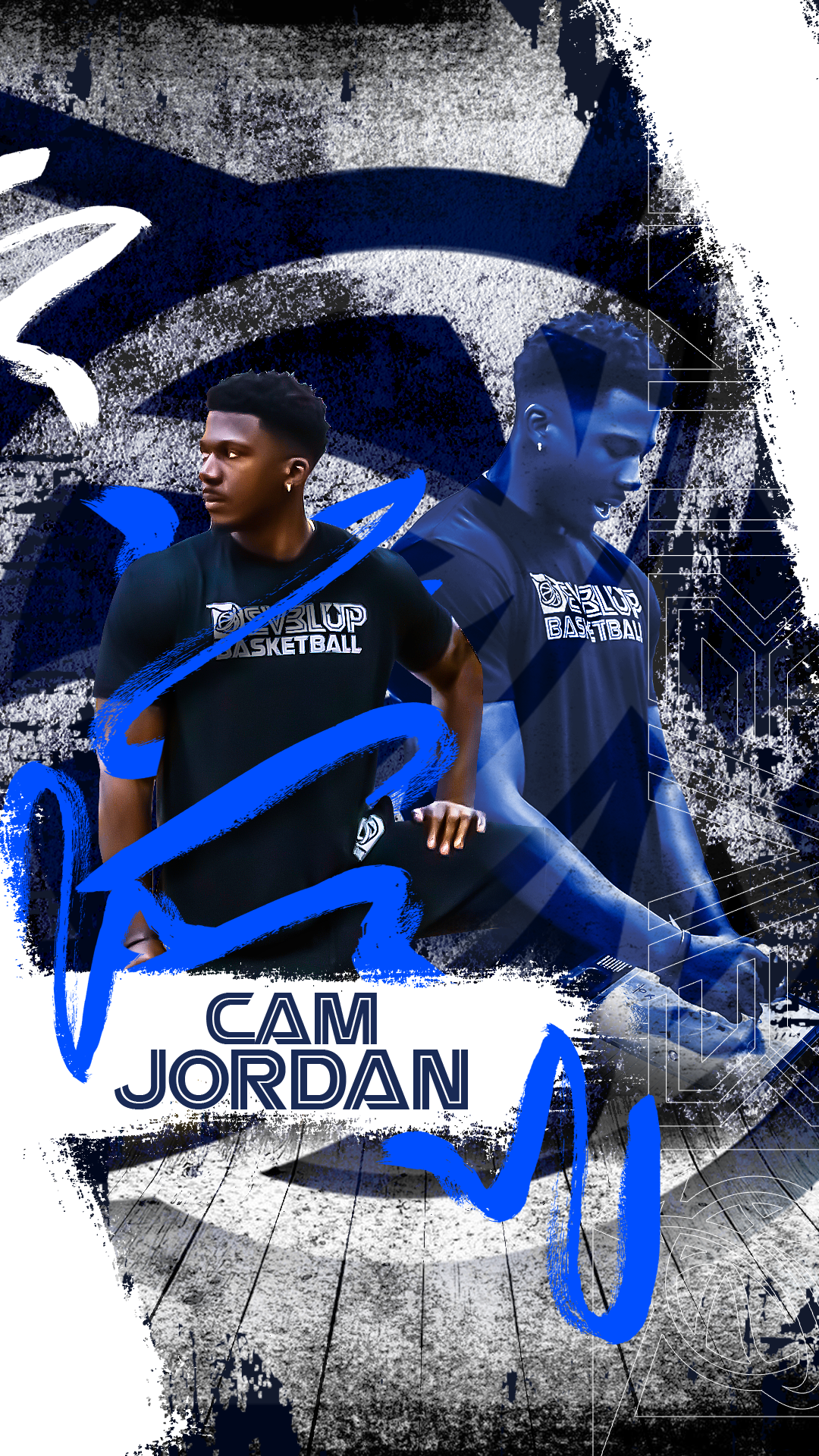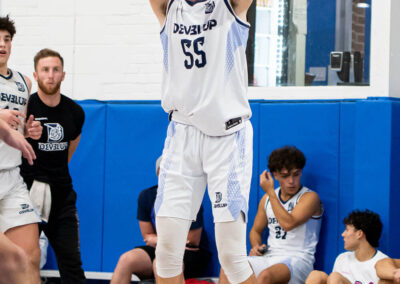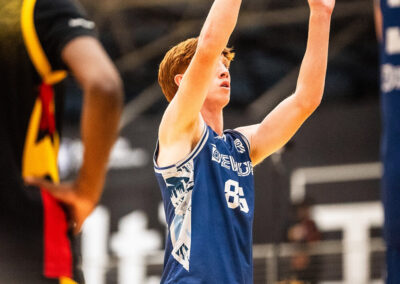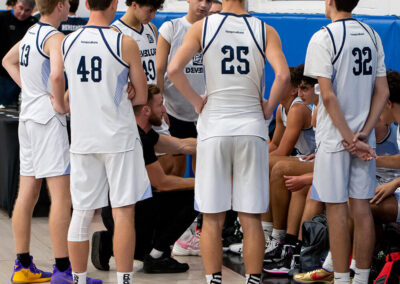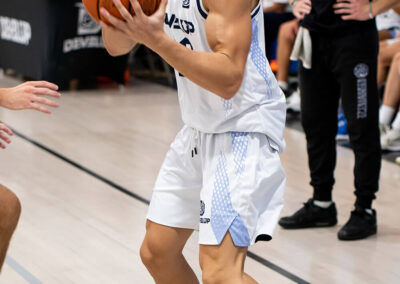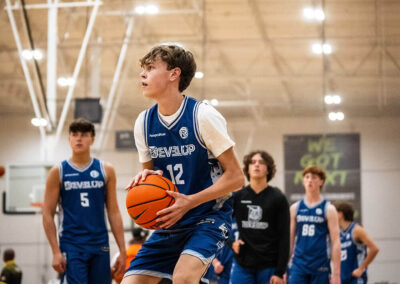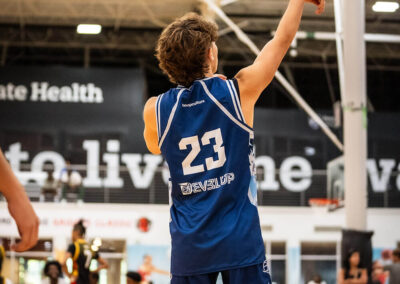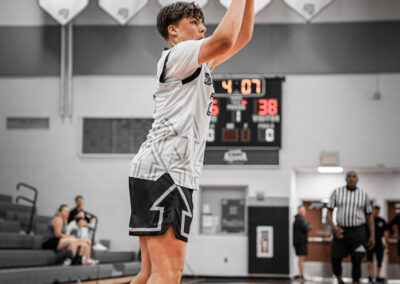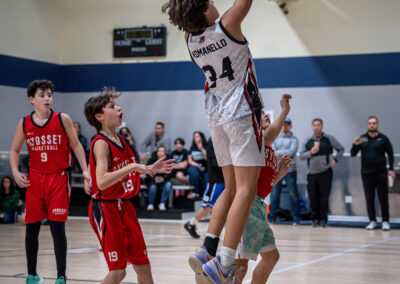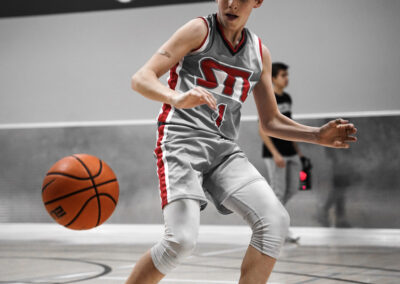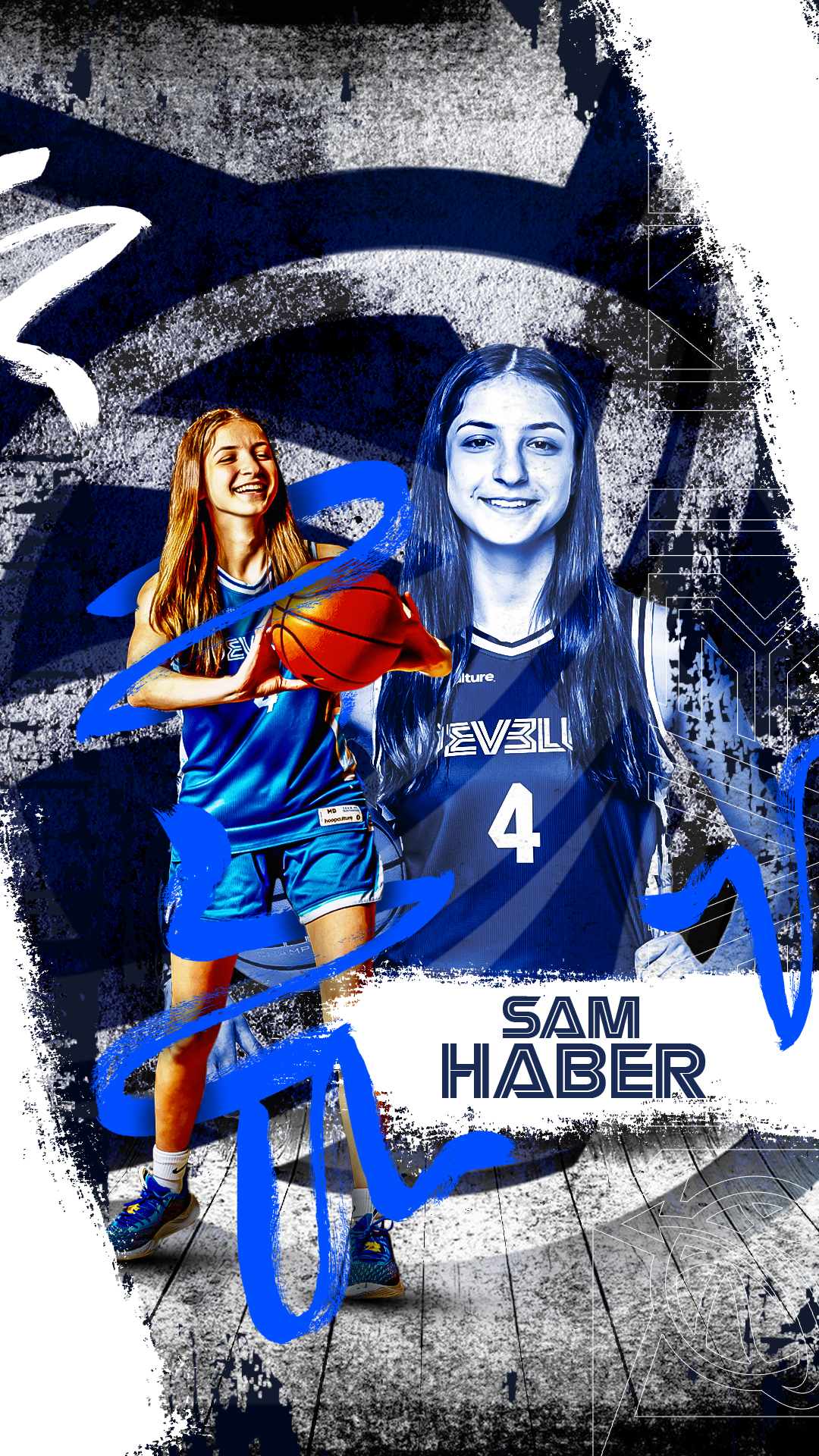Youth Basketball Mental Training
Basketball is more than a physical contest—it’s a mental challenge. For youth athletes, the game tests not only speed, strength, and agility but also focus, confidence, and resilience. A missed shot, a tough loss, or the pressure of performance can derail a young player—unless they’re mentally prepared.
At DevelUp Basketball, we believe that mental toughness is just as trainable as a jump shot or crossover. Our programs integrate psychological conditioning to help young athletes stay sharp, bounce back from setbacks, and unlock their true potential.
In this post, we explore the crucial role of mental training in youth basketball, the benefits of building mental resilience and focus, and how these skills empower players both on and off the court.
Key Trends and Insights: The Mental Edge in Youth Basketball
1.Resilience: Learning to Bounce Back from Setbacks
Mistakes and losses are inevitable in basketball. What sets great players apart is their ability to recover, adapt, and grow from failure.
- Mental resilience teaches youth how to face challenges head-on.
- Encourages growth mindset: viewing failures as learning opportunities.
- Builds emotional stability in high-pressure moments.
At DevelUp Basketball: We coach players to analyze their mistakes without fear, helping them see failure as fuel for future success.
Resilience also helps players manage criticism, whether from coaches, teammates, or themselves. Instead of taking negative feedback personally, resilient athletes use it to refine their game.
2.Focus Under Pressure: Staying Present in the Game
With distractions everywhere—from the scoreboard to the crowd to personal stress—maintaining focus is a skill that requires deliberate practice.
- Teaches players to stay present and block out noise.
- Improves decision-making during fast-paced plays.
- Reduces mental fatigue by focusing attention effectively.
Pro Tip: Mindfulness exercises like deep breathing or visualization before games can enhance concentration.
Consistent focus helps players stay engaged in both practice and play, making training sessions more effective and competitive games less overwhelming.
3.Confidence Through Preparation and Positive Self-Talk
Confidence isn’t something you’re born with—it’s built over time through preparation and positive reinforcement.
- Helps reduce performance anxiety.
- Encourages players to replace negative thoughts with constructive ones.
- Boosts self-belief and consistency in performance.
At DevelUp Basketball, we reinforce confidence through skill repetition and mentorship, teaching players how to become their own biggest supporters.
Parents and coaches also play a key role. Constructive praise and realistic encouragement from adults can boost a child’s inner dialogue and foster a confident outlook.
4.Goal Setting and Mental Discipline
Clear goals keep young athletes motivated and on track. When paired with discipline, they fuel consistent progress.
- SMART goals (Specific, Measurable, Achievable, Relevant, Time-bound) improve focus.
- Players learn to break larger challenges into manageable steps.
- Builds intrinsic motivation and personal accountability.
Example: A player may set a goal to improve free-throw accuracy by 10% over 4 weeks through targeted drills.
Additionally, tracking progress and celebrating milestones helps athletes stay committed and develop a deeper appreciation for their growth journey.
5.Visualization and Mental Rehearsal Techniques
Top athletes—from Olympians to NBA stars—use visualization to mentally prepare for high-stakes moments.
- Enhances performance by rehearsing success in the mind.
- Builds confidence before games or critical plays.
- Can be practiced during warm-ups or quiet time.
DevelUp Advantage: We teach players how to see success before it happens—training the brain to execute like a pro.
Visualization also reduces anxiety by making unfamiliar or intimidating scenarios feel familiar. By rehearsing mentally, young athletes can stay calm and composed even in clutch moments.
6.Emotional Intelligence and Team Dynamics
Youth basketball is a team sport, and mental strength includes understanding yourself and your teammates.
- Emotional regulation leads to better teamwork and sportsmanship.
- Players learn empathy, active listening, and leadership.
- Builds stronger, more connected teams.
Coach’s Tip: Encourage players to support each other, even after losses—it boosts morale and resilience.
Conflict resolution and healthy communication can be taught through structured team activities and role-playing exercises, laying the foundation for strong character development.
7.The Role of Coaches and Mentors
The right coach can have a lasting impact on a player’s mental game. By modeling positive behavior and providing constructive feedback, mentors guide athletes in becoming mentally tough.
- Coaches create a safe environment to discuss struggles.
- They identify each athlete’s emotional strengths and weaknesses.
- Mentorship builds trust and long-term development.
At DevelUp Basketball, our coaches act as mentors, helping athletes tap into their mental potential through targeted feedback and personalized guidance.

Real-Life Applications and Lasting Benefits
Mental training in youth basketball goes beyond the court. Here’s how it benefits players long-term:
- Academic success: Focus and time management translate to better study habits.
- Social skills: Empathy and teamwork improve peer relationships.
- Career readiness: Discipline and resilience prepare young athletes for future challenges in any field.
- Emotional wellbeing: Confidence and stress management enhance overall mental health.
Whether your child dreams of playing in college or excelling in life, the mindset they develop through basketball is a lifelong asset.
Empower Your Child with Mental Strength
At DevelUp Basketball, we’re committed to developing complete athletes—physically and mentally. Our training programs incorporate performance psychology techniques to build resilience, focus, and confidence.
Ready to help your athlete master the mental game?
Explore our programs or contact us today to get started.






